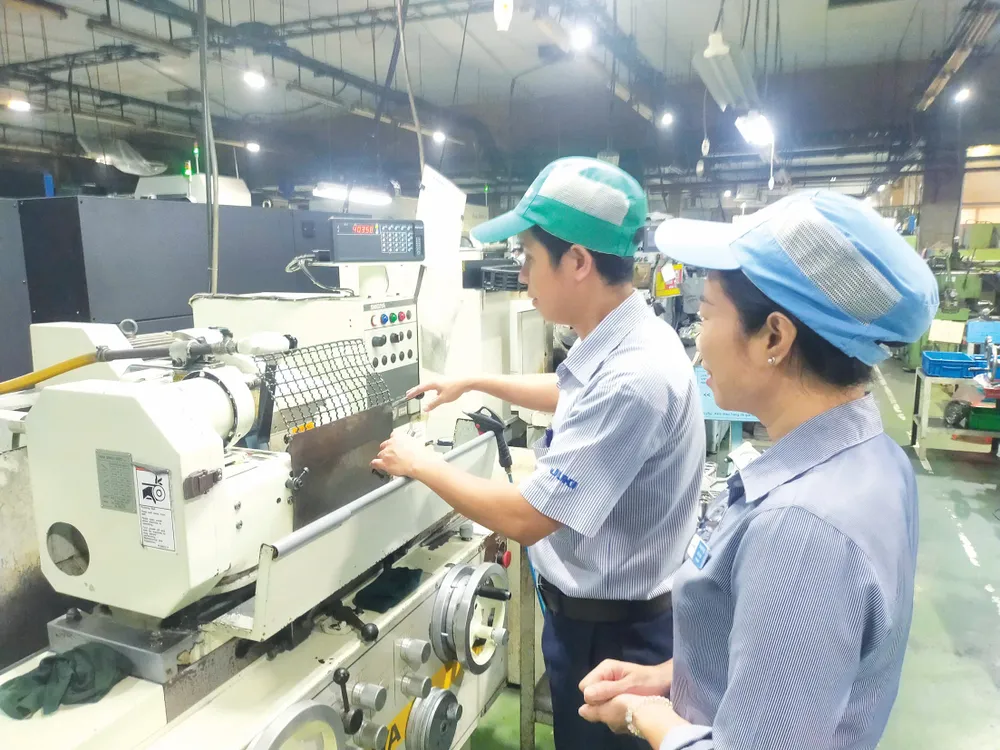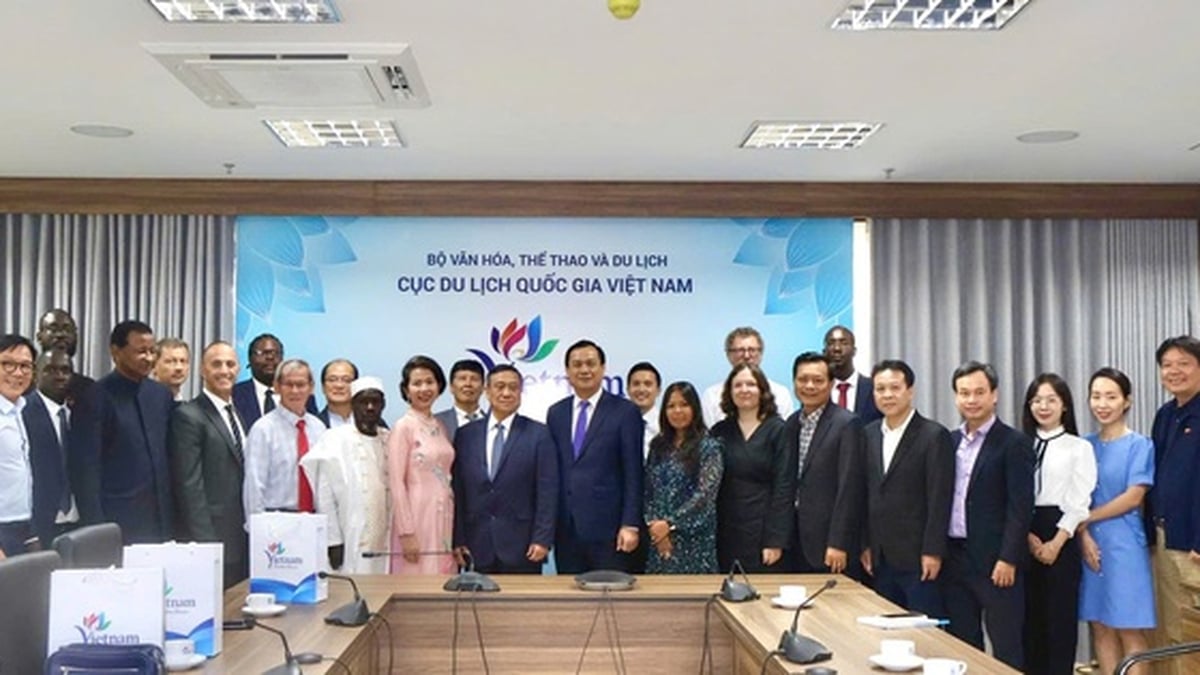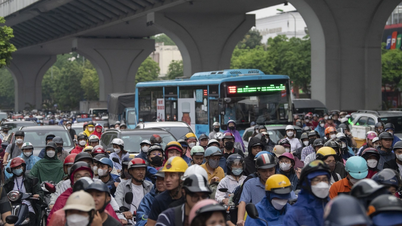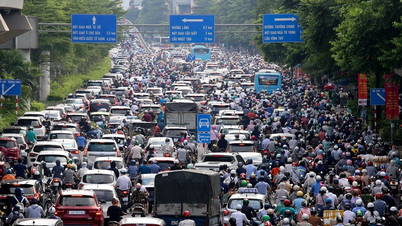Increase motivation to stay with the business
When income is improved, employees will feel more appreciated and recognized for their contributions. This directly increases work motivation, encouraging employees to strive to improve productivity and work quality. They will also tend to stay with the business longer, reducing the rate of personnel fluctuation.
However, with the reality of inflation and depreciation, the 7.2% increase may not really help workers have a significant accumulation or significantly improve the quality of life for low-income families.
After comparing data and information on regional minimum wage increases in recent years, Mr. Luu Kim Hong, Chairman of the Trade Union of Nidec Vietnam Co., Ltd. (Ho Chi Minh City High-Tech Park), shared that the average increase in regional minimum wage of more than VND200,000/year is still too low. According to Mr. Hong, it would be more appropriate to have an automatic mechanism to increase the minimum wage by a few percent annually higher than the inflation rate to both compensate for inflation and have savings for workers.

Increasing the regional minimum wage benefits workers but poses a challenge for businesses, especially in the current economic climate. According to some business owners, increasing the regional minimum wage will be accompanied by an increase in labor costs. Increasing the minimum wage means businesses will have to increase their payroll costs, including social insurance, health insurance, unemployment insurance and union fees. This will put pressure on production and business costs.
This challenge is most evident for small and micro enterprises; especially those that are facing difficulties in orders and markets will be under greater pressure. Large enterprises, in particular, often have salaries higher than the regional minimum wage, so the impact may not be too great.
According to the proposal, the regional minimum wage will increase from January 1, 2026.
Region I: From 4.96 to 5.31 (million VND/month)
Region II: From 4.41 to 4.73 (million VND/month)
Region III: From 3.86 to 4.14 (million VND/month)
Region IV: From 3.45 to 3.7 (million VND/month)
However, with the average increase of 7.2% that the National Wage Council has finalized to submit to the Government for approval, experts assess that it is harmonious, both ensuring the rights of workers and creating conditions for businesses to have the opportunity to recover and develop in a context of many challenges.
According to the survey results conducted by the Vietnam General Confederation of Labor in March and April this year (with nearly 3,000 workers responding to questionnaires in 10 provinces and cities), 54.9% of workers said their salary and income were just enough for their family's basic expenses; 26.3% had to spend frugally; 7.9% did not have enough to live on and had to do other jobs to earn more income to cover their living expenses.
Control inflation, support businesses
Mr. Ngo Duy Hieu, Vice President of the Vietnam General Confederation of Labor, Vice President of the National Wage Council, said that the proposed regional minimum wage this time has met the expectations and wishes of union members and workers nationwide; at the same time, it shows the spirit of sharing with the difficulties of businesses.
“This salary will also motivate employees to work with enthusiasm and make efforts so that by the end of this year we can achieve the 8% growth target and from next year onwards we can achieve the double-digit growth target of the Vietnamese economy,” said Mr. Ngo Duy Hieu.
National Assembly Deputy Thai Thu Xuong, Permanent Vice President of the Vietnam General Confederation of Labor, also informed that voters, especially workers in industrial zones, are facing double pressure from rising electricity and gold prices, leading to rising food prices. According to Mr. Thai Thu Xuong, many workers still have to live in cramped boarding houses and struggle to make ends meet. Therefore, Mr. Thai Thu Xuong recommended that the Government should have effective solutions to control inflation, stabilize prices of essential goods, and urgently consider adjusting the regional minimum wage, or even adjusting it earlier to suit reality.
Agreeing with this view, Mr. Nguyen Viet Cuong (independent expert of the National Wage Council) said that increasing the regional minimum wage must ensure the basic principle of compensating for inflation and ensuring a minimum standard of living.

To ensure the rights of businesses and workers, experts suggest considering reducing or postponing certain taxes and fees, or adjusting other contributions so that businesses have resources for reinvestment. In addition, continue to provide preferential credit packages for businesses so that businesses do not suffer from cash flow disruptions due to increased wage costs. At the same time, the State strengthens inspections and checks to ensure that businesses strictly comply with regulations on minimum wages; strictly handle violations to protect workers' rights.
Mr. Hoang Quang Phong, Vice President of the Vietnam Confederation of Commerce and Industry (VCCI), Vice President of the National Wage Council, stated that employers must be determined to improve their management capacity and apply science and technology with the goal of ensuring the maintenance of business development indicators, protecting the number of jobs and especially retaining skilled workers in the context of increasing wages as well as other costs.
Mr. NGUYEN MANH KHUONG, Deputy Minister of Home Affairs, Chairman of the National Wage Council:
Appropriate increase for current stage
The plan to increase the regional minimum wage in 2026 was "finalized" by the National Wage Council and submitted to the Government as an average increase of 7.2%, equivalent to an average increase of 300,000 VND/month compared to 2025. This is an increase appropriate to the current stage of the country's economic development, towards the era of national growth as well as the target of 8% economic growth in 2025 and double digits in the following years.
Dr. TRAN QUANG THANG, Representative of Ho Chi Minh City People's Council, Director of Ho Chi Minh City Institute of Economics and Management:
Synchronize multiple policies
For the wage increase to be truly meaningful, many policies need to be synchronized, such as adjusting the personal income tax deduction level, helping workers retain their increased income, avoiding the situation of "salary has not increased, price has increased". At the same time, taxes, fees, access to capital, human resource training, tax payment deadline extension and social insurance for small and medium enterprises need to be reduced so that these enterprises can adapt to the increase in labor costs. Workers' housing, health care, education, and insurance need to be improved to reduce the burden of spending and ensure that enterprises properly implement the minimum wage, not "circumventing the law" by increasing nominal wages but reducing allowances.
Mr. NGUYEN VAN HUNG, Chairman of the Trade Union of Dai Dung Construction and Trading Mechanical Joint Stock Company:
Great motivation for workers
Increasing the regional minimum wage by 7.2% is a necessary step to ensure social security and share the fruits of growth. For workers, this is a great motivation for them to contribute and improve their quality of life. For businesses, this is a challenge but also an opportunity for them to review and optimize their operations, moving towards a more effective and sustainable business model, not just relying on the advantage of cheap labor.
Source: https://www.sggp.org.vn/tang-luong-toi-thieu-vung-72-tu-nam-2026-hai-hoa-loi-ich-doanh-nghiep-va-nguoi-lao-dong-post803762.html







































































































Comment (0)